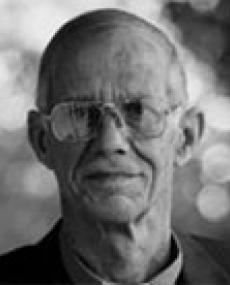
Born in the late 1930s, Bishop David Patrick Russell became involved in the struggle against apartheid from an early age. He did his first degree at the University of Cape Town, and then studied for a Masters Degree at Oxford University. He trained for the priesthood at the College of the Resurrection, Mirfield, England, and later obtained his PhD in Religious Studies (specialising in Christian Ethics) from the University of Cape Town. In 1965 he was ordained as the 12th Bishop of Grahamstown.
Born in the late 1930s, Bishop David Patrick Russell became involved in the struggle against apartheid from an early age. He did his first degree at the University of Cape Town, and then studied for a Masters Degree at Oxford University. He trained for the priesthood at the College of the Resurrection, Mirfield, England, and later obtained his PhD in Religious Studies (specialising in Christian Ethics) from the University of Cape Town. In 1965 he was ordained as the 12th Bishop of Grahamstown.
In 1977, while working as a chaplain to migrant workers in Cape Town, he was banned and placed under house arrest for five years. On 28 February 1980, after defying his banning order, he was sentenced to three-and-half years in prison, with two-and-half years being suspended. Bishop Russell had attended an Anglican Church synod and the government alleged that he had infringed his banning order. For this, he was taken to Pollsmoor Prison and released on R500 bail, pending the outcome of an appeal lodged on his behalf by his lawyers.
The Bishop has served on the Bench of Bishops of the Anglican Church of Southern Africa since 1986, the same year that Archbishop Desmond Tutu was elected to lead the province. He was a Suffragan Bishop in the Diocese of St John’s from 1986 to 1987 and then Bishop of Grahamstown until 2004. While serving later with Archbishop Njongonkulu Ndungane, he was chairperson of the Southern African Anglican Theological Commission and Dean of the province (Anglican Church of Southern Africa).
Since retiring as Bishop of Grahamstown in 2004, he has been working in Cape Town with Inclusive and Affirming Ministries (IAM), a Christian non-governmental organisation.
The ministry of women in the church was affirmed when the first female priests in the Anglican Church in southern Africa were ordained by Bishop Russell in 1992. He is honoured for his role in opposing the apartheid system as a church leader and for taking a brave stand on many thorny issues to ensure that South Africa became a democratic society.
Bishop Russell and his wife Dorothea have two sons.
On 27 April 2011, the State President, Jacob G Zuma, conferred Bishop David Patrick Russell was conferred with the Order of the Baobab in Silver for his outstanding contribution to the theological field.